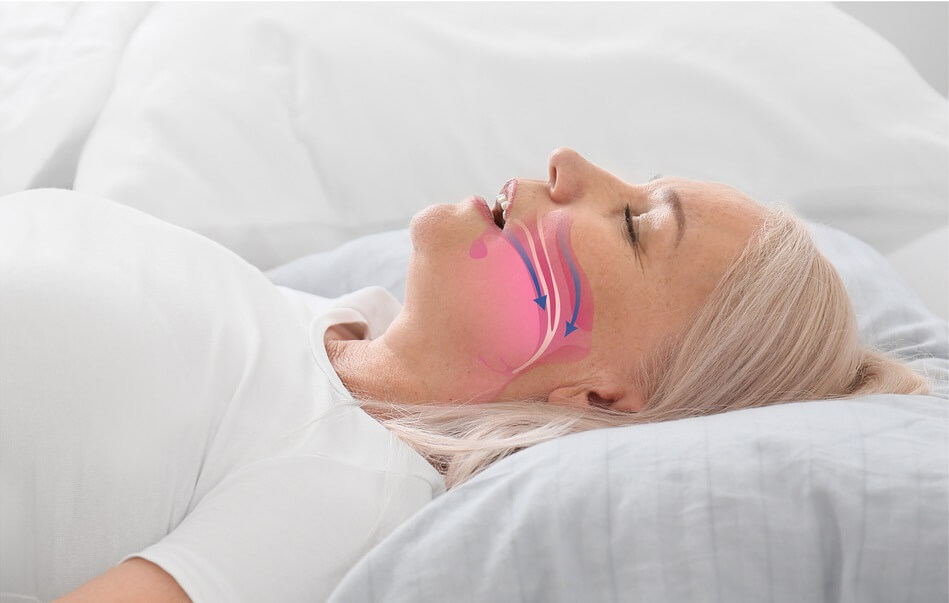Understanding Upper Airway Resistance Syndrome: Symptoms, Diagnosis, and Treatment Options
Upper Airway Resistance Syndrome (UARS) is a sleep disorder characterized by partial blockage or narrowing of the upper airway during sleep, leading to increased resistance to airflow. While not as widely recognized as obstructive sleep apnea (OSA), UARS can significantly impact sleep quality and overall health. Understanding its symptoms, diagnosis, and treatment options is crucial for effective management.
Symptoms of Upper Airway Resistance Syndrome
Individuals with UARS often experience symptoms similar to those of OSA, albeit less severe. Common symptoms include:
- Excessive Daytime Sleepiness: Patients may feel persistently tired or sleepy during the day, despite seemingly adequate sleep duration.
- Fatigue: Chronic fatigue or feelings of exhaustion are common complaints among individuals with UARS.
- Morning Headaches: Waking up with headaches, particularly in the morning, is a frequent symptom associated with UARS.
- Difficulty Concentrating: Cognitive dysfunction, including difficulty concentrating and memory problems, may arise due to poor sleep quality.
- Irritability: Mood disturbances, including irritability and mood swings, can result from disrupted sleep patterns.
- Insomnia: Some individuals with UARS may experience difficulty falling asleep or maintaining sleep throughout the night.
Diagnosis of Upper Airway Resistance Syndrome
Diagnosing UARS can be challenging due to its similarities with other sleep disorders. Healthcare providers typically rely on a combination of clinical evaluation and diagnostic tests, including:
- Polysomnography (PSG): This comprehensive sleep study monitors various physiological parameters during sleep, such as airflow, respiratory effort, oxygen saturation, and brain activity. PSG helps identify respiratory disturbances and assess the severity of UARS.
- Home Sleep Apnea Testing (HSAT): In some cases, portable sleep monitoring devices may be used to diagnose UARS, especially when PSG is not readily available or feasible.
- Clinical Assessment: Healthcare providers evaluate the patient’s medical history, symptoms, and physical examination findings to assess the likelihood of UARS.
Treatment Options for Upper Airway Resistance Syndrome

Managing UARS typically involves a multidisciplinary approach aimed at improving sleep quality and alleviating symptoms. Treatment options may include:
- Continuous Positive Airway Pressure (CPAP) Therapy: CPAP therapy delivers a steady stream of air through a mask worn over the nose or nose and mouth, preventing upper airway collapse and maintaining an open airway during sleep.
- Oral Appliance Therapy: Mandibular advancement devices (MADs) or tongue-retaining devices (TRDs) may be prescribed to reposition the jaw or tongue, respectively, to prevent airway obstruction during sleep.
- Lifestyle Modifications: Encouraging healthy lifestyle habits, such as weight management, regular exercise, and avoiding alcohol and sedatives before bedtime, can help improve sleep quality and reduce UARS symptoms.
- Positional Therapy: Some individuals may benefit from positional therapy, which involves using devices or techniques to maintain a specific sleeping position that reduces the likelihood of airway collapse.
- Surgery: In rare cases, surgical intervention may be considered to address anatomical abnormalities contributing to upper airway obstruction, such as nasal septal deviation or enlarged tonsils.
Conclusion
Upper Airway Resistance Syndrome (UARS) poses significant challenges to sleep quality and overall well-being. By recognizing its symptoms, obtaining an accurate diagnosis, and exploring appropriate treatment options, individuals with UARS can effectively manage their condition and enjoy improved sleep health. Collaborating with healthcare professionals and adopting healthy lifestyle habits are essential steps towards achieving optimal outcomes in UARS management.

